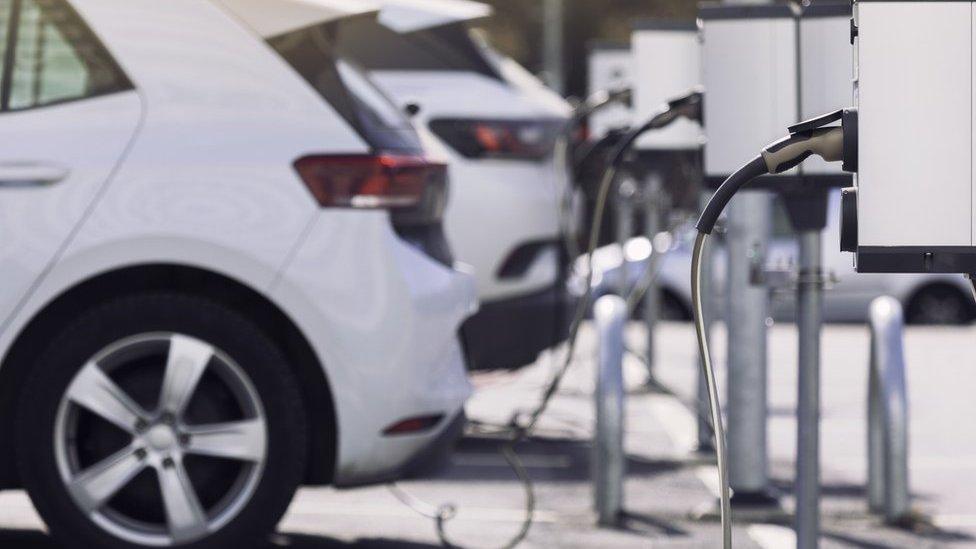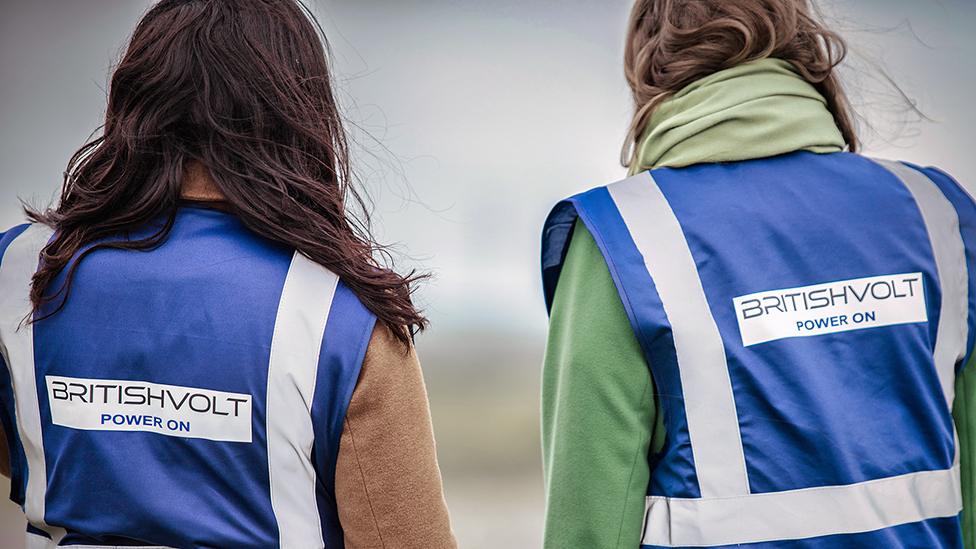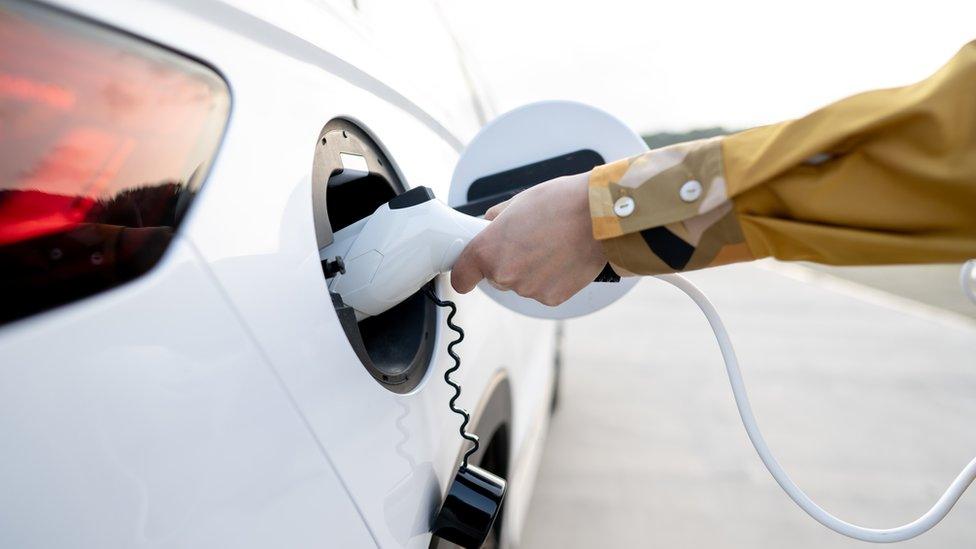EU to delay tariffs on UK electric cars until 2027
- Published
- comments

Tariffs on electric vehicles traded between the UK and EU will be delayed for three years, the European Commission has proposed.
It comes after carmakers on both sides of the Channel warned they were not ready for the change to post-Brexit trade rules planned from January.
The rules were meant to protect the EU car industry, but the 10% tariffs were likely to lead to huge costs.
EU member states still need to approve the plan at a meeting next week.
The Commission had initially rejected the idea delaying the rules, despite pleas from carmakers and the UK government.
But on Wednesday, the Commission said the "one-off extension" was needed to support the bloc's car industry, which was still struggling with the impacts of the pandemic, Russia's invasion of Ukraine and competition from US subsidies.
Under EU "rules of origin" that were due to come in from January, cars produced in either the EU or UK would need to have been largely made from locally sourced parts to qualify as being tariff free.
The aim was to protect the European industry from cheap imports from countries such as China, which has become a dominant force in the global electric vehicle (EV) market.
But in terms of cross-Channel trade, the rules would have meant that EVs needed to have batteries produced in either the UK or the EU, and many carmakers warned they would struggle to meet the criteria.
The pace of local battery production has been slower than expected, leaving manufacturers reliant on imports.
Heavy costs
Industry bodies raised concerns that the rules would cost European manufacturers £3.75bn over the next three years.
There were also fears that steep tariffs could make electric cars more expensive to produce and potentially push up prices.
The UK government had been lobbying the EU to postpone the rules.
While the Commission's move will not be a huge surprise, carmakers will be relieved on both sides of the Channel given the tariffs were due to come in from January.
The UK is by far the largest export market for European manufacturers, with 1.2 million vehicles being delivered to UK ports last year. At the same time the UK sells more cars to the EU than any other region.
Although it has proposed a three-year delay to the rules, the European Commission said it would add a clause to the Brexit trade deal making it "legally impossible" for the extension to last any longer. This, it said, would lock in its rules of origin from 2027.
The Commission also said it would provide €3bn in funding over the next three years to help boost European battery manufacturers.
The new deadline places UK electric car production in the spotlight, with plans for so-called gigafactories, such as Jaguar Land Rover's in Somerset, being announced, but none close to producing batteries yet.
Doubts also remain over a site in Blyth in Northumberland which has been earmarked for making car batteries.
Related topics
- Published5 November 2023

- Published25 September 2023
